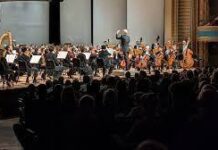 Artists, label heads and industry schemers know that success in pop music today requires racking up plays on TikTok and streaming services. But there’s another, unlikely platform that’s picking up steam: Roblox.
Artists, label heads and industry schemers know that success in pop music today requires racking up plays on TikTok and streaming services. But there’s another, unlikely platform that’s picking up steam: Roblox.
Roblox is a game-creation engine, first released in 2006, that allows players to customize their own sandbox worlds, create mini-games on multiplayer servers and enjoy a second life online as square-shaped beings called Robloxians. Unlike Minecraft, a game that drops users into a fantastical “otherworld,” Roblox’s most popular mini-games (or, as Roblox calls them, “experiences”) are rooted in real life. They are “roleplays,” meaning the player performs a certain persona; you can be a sheriff, a parent adopting a child, a pizza chef.
Artists, label heads and industry schemers know that success in pop music today requires racking up plays on TikTok and streaming services. But there’s another, unlikely platform that’s picking up steam: Roblox.
Roblox is a game-creation engine, first released in 2006, that allows players to customize their own sandbox worlds, create mini-games on multiplayer servers and enjoy a second life online as square-shaped beings called Robloxians. Unlike Minecraft, a game that drops users into a fantastical “otherworld,” Roblox’s most popular mini-games (or, as Roblox calls them, “experiences”) are rooted in real life. They are “roleplays,” meaning the player performs a certain persona; you can be a sheriff, a parent adopting a child, a pizza chef.
Last year the platform spawned its own music genre — robloxcore. Mostly made by young teenagers, it’s a strain of chaotic, profanity-laden rap that’s overloaded with frantic sound effects. Tunes like “Threat,” by lieu, a 13-year-old musician, emulate being inside a digital dimension where every bass thud and synth shake is an enemy you’re blowing past, every vocal stutter and short-circuited squeak a new obstacle to avoid. The scene has made ripples in the underground music circuit, and earned a nod from Phoebe Bridgers on Twitter.












